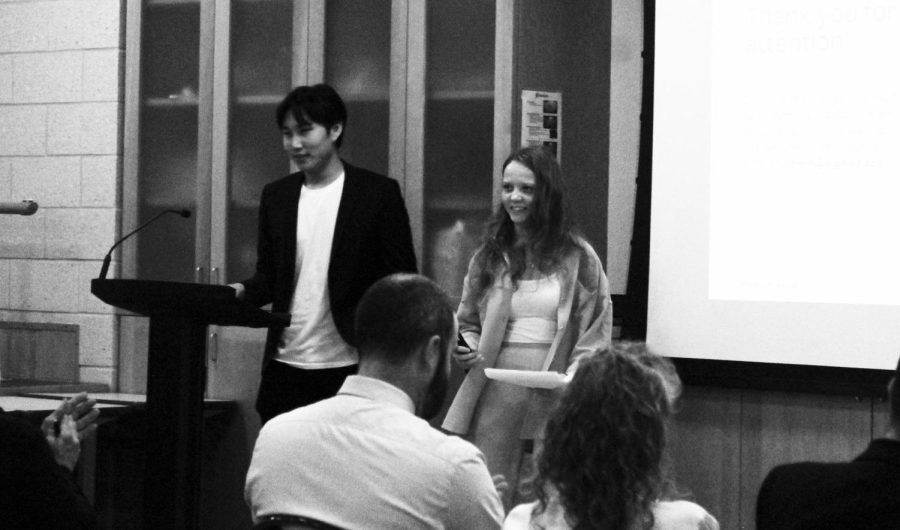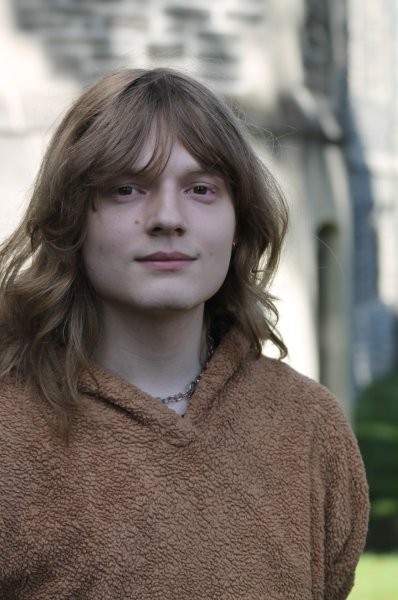IEC Launches Masters Innovation Challenge for Student Start-Ups
Nataliia Kulieshova and Dayan Battulga present their winning Masters Innovation Challenge project, in which they created an app called Signisa. Runners-up were Alice Fuller and Rebbeca Troy in second place, and AJ Bagaria and Bobby Callagy in third place.
March 10, 2023
The Masters Innovation Challenge, organized by the Innovation & Entrepreneurship Center (IEC), provides a platform for students to unleash their creativity and develop innovative solutions to real-world problems. According to John Chiodo, the director of the IEC, the focus is on identifying consequential problems and developing solutions for them rather than solely on the product. Chiodo explains, “We look for students to uncover a consequential problem that needs solving. It’s really [more] about the problem and developing a solution for it than it is about the product that they come up with.”
In the initial stage, 14 Upper School student teams submitted their proposals, and the results were announced in January, with five teams as finalists. The final pitch session took place on Thursday, Feb. 16, where a panel of judges, including school administrators and different entrepreneurs, evaluated the teams’ presentations. “One of the people there was a venture capitalist. One of the other people there, I believe, is in Real Estate Investment and Development. Another one has owned a number of companies but currently owns a green energy company,” Chiodo said. During the finalist pitch session, the students had to answer questions about their products, finances, and long-term plans on the spot.
The first-place prize, accompanied by an award of $300, was awarded to Nataliia Kulieshova and Dayan Battulga for their outstanding creation: Signisa, an sign language learning app. Designed to bridge the communication gap between the deaf and hearing communities, Signisa utilizes artificial intelligence and machine learning technologies to facilitate the teaching and learning of sign language.
The second place prize and an award of $200 were Alice Fuller and Rebecca Troy for their visionary concept, Nu Plastics. Their product is a breakthrough sodium alginate bioplastic that can be fully composted in a home environment. The third-place winners, AJ Bagaria and Bobby Callagy, were awarded $100 for their innovative creation, ON Diagnostic Systems. Their pioneering concept, ON, addresses the critical issue of drowsy driving among truck drivers. By using EEG technology to detect theta waves associated with fatigue, ON can notify drivers if they exhibit symptoms of fatigue.
The Masters Innovation Challenge not only celebrated the winners but also highlighted the potential of all the finalists to develop various initiatives based on their ideas. The event served as a reminder that innovation has no borders.




